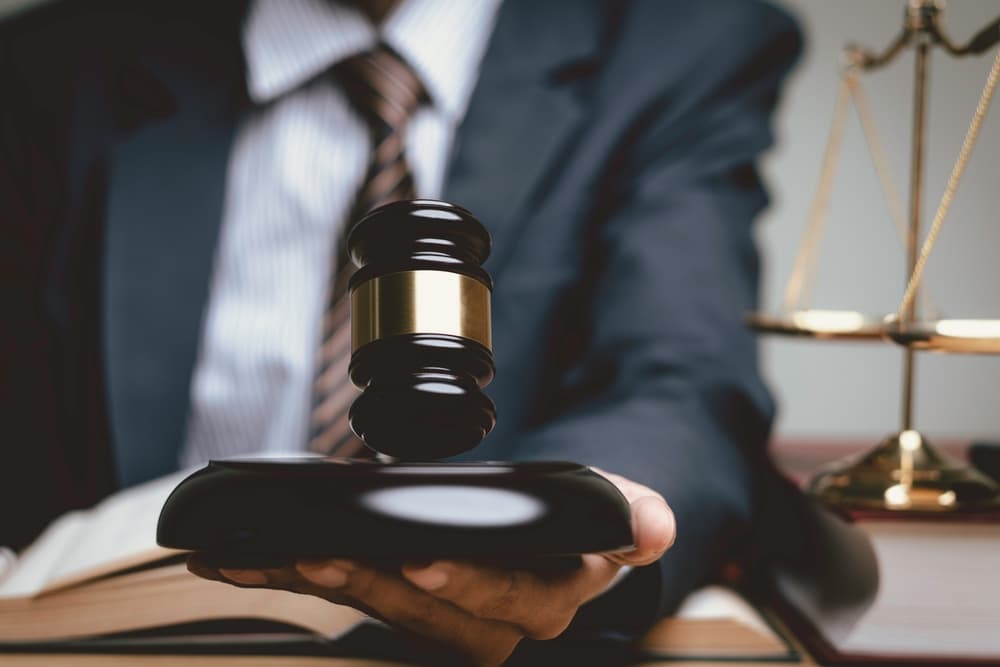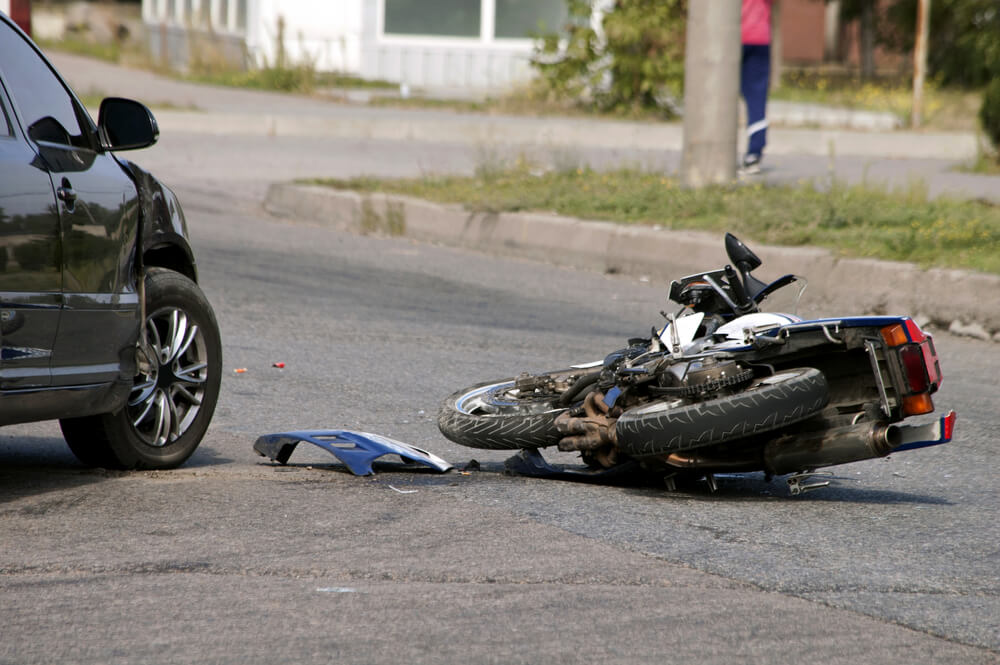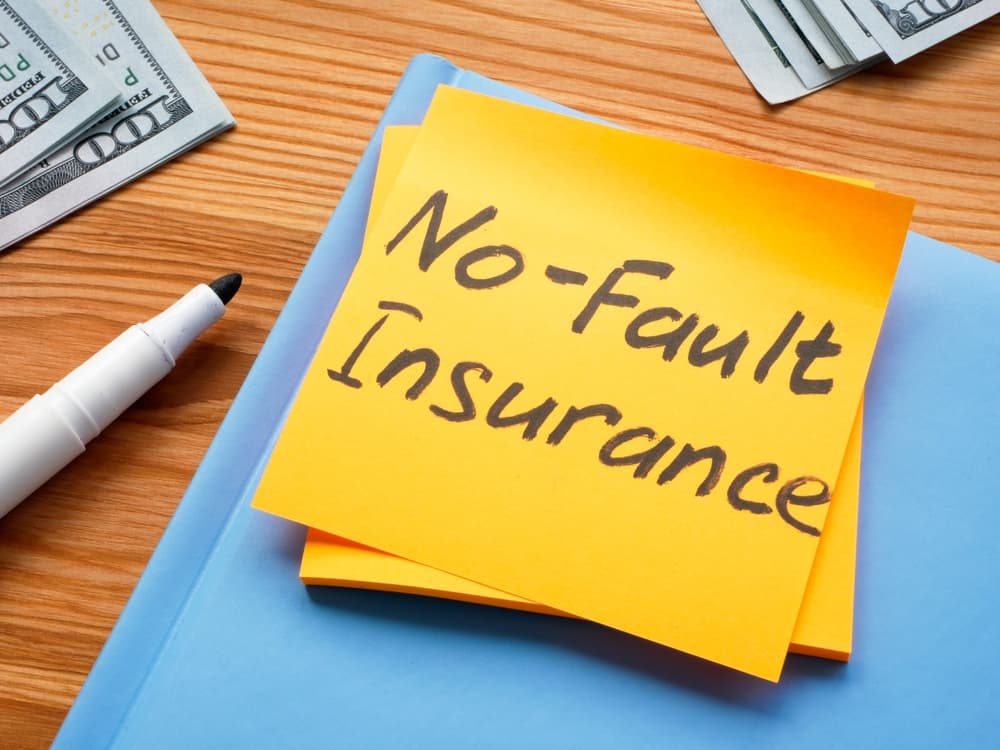Reports | July 17, 2024 | Motorcycle accident

Navigating the aftermath of a motorcycle accident can be daunting, especially when dealing with injuries and potential financial burdens. Understanding the complexities of motorcycle accident claims and the benefits of legal representation can significantly improve your recovery process. A skilled motorcycle accident lawyer can help you gather evidence, negotiate with insurance companies, and represent your interests in court, ensuring you receive fair compensation for your losses.
If you’ve been injured in a motorcycle accident and are unsure about your legal options, contact Bagen Law Accident Injury Lawyers, P.A.. today at (800) 800-2575 for a free consultation to discuss your case and potential compensation.
What Makes Motorcycle Accident Claims So Complex

Motorcycle accidents involve multiple factors that require thorough investigation and understanding. Here are some key aspects to consider:
Common Causes of Motorcycle Accidents
Motorcycle accidents often result from a variety of causes, including:
- Speeding: High speeds increase the severity of accidents and reduce reaction times.
- Right of Way Violations: Many drivers fail to yield to motorcyclists when turning or merging.
- Distracted Driving: Texting, using a phone, or other distractions can lead to accidents.
- Driving Under the Influence: Alcohol and drugs impair judgment and reaction times.
- Unsafe Lane Changes: Failing to check blind spots or signal when changing lanes can cause collisions.
Common Motorcycle Crash Injuries
Motorcycle accidents often result in severe injuries due to the lack of protection compared to cars. Common injuries include:
- Traumatic Brain Injuries (TBI): Even with a helmet, motorcyclists can suffer significant head injuries.
- Spinal Cord Injuries: These can lead to partial or complete paralysis.
- Fractures and Broken Bones: Especially in the arms and legs.
- Road Rash: Severe skin abrasions that can lead to infections.
- Internal Injuries: Damage to internal organs due to blunt force trauma.
Types of Motorcycle Accidents
Different types of motorcycle accidents can illustrate the various scenarios where you need legal help:
- Head-On Collisions: These are often the most fatal and typically occur when a vehicle crosses into the motorcyclist’s lane.
- Rear-End Collisions: These can happen when a car follows a motorcycle too closely and fails to stop in time.
- Sideswipe Accidents: Occur when a car changes lanes without noticing a motorcyclist.
- Left-Turn Accidents: These are common at intersections when a car turns left in front of an oncoming motorcycle.
Types of Damages You Can Claim
After a motorcycle accident, you may be entitled to various types of damages, which generally fall into two categories:
- Economic Damages: These include tangible losses such as:
- Medical expenses (hospital bills, surgeries, medications)
- Rehabilitation costs
- Lost wages and future earning capacity
- Property damage (repair or replacement of your motorcycle)
- Non-Economic Damages: These cover intangible losses such as:
- Pain and suffering
- Emotional distress
- Loss of enjoyment of life
- Loss of consortium (impact on relationships with family members)
Challenges Faced by Victims
Victims of motorcycle accidents often face numerous challenges, including:
- Bias Against Motorcyclists: A common bias paints motorcyclists as reckless, which can affect claim outcomes.
- Severe Injuries: Motorcyclists are more exposed than car occupants, leading to more severe injuries.
- Complex Liability Issues: Determining fault can require a lawyer, especially if a crash involves multiple parties.
- Insurance Company Tactics: Insurance companies often aim to minimize payouts, complicating the claims process.
How a Motorcycle Accident Lawyer Can Help
Hiring a motorcycle accident lawyer can significantly impact the outcome of your claim. Here are some critical roles they play:
Investigation and Evidence Gathering
A motorcycle accident lawyer conducts a thorough investigation to build a strong case. This involves:
- Collecting Evidence: Gathering police reports, medical records, and witness statements.
- Expert Consultations: Consulting accident reconstruction specialists and medical experts to provide professional opinions.
- Scene Analysis: Examining the accident scene for crucial evidence like skid marks, traffic camera footage, and road conditions.
- Documenting Injuries and Damages: Ensuring all injuries and property damages are well-documented to support the claim.
Maximizing Compensation
An experienced motorcycle accident lawyer works to ensure you receive the maximum compensation possible by:
- Accurately Assessing Damages: They meticulously calculate all economic and non-economic damages, including medical expenses, lost wages, pain and suffering, and future costs.
- Negotiating Aggressively: They engage in tough negotiations with insurance companies to secure fair settlements that fully compensate you for your losses.
- Seeking Additional Compensation: They explore all possible avenues for compensation, such as pursuing claims against multiple liable parties if applicable.
Negotiation with Insurance Companies
Insurance companies often aim to minimize payouts. A lawyer helps by:
- Claim Filing: Ensuring all paperwork is correctly submitted.
- Handling Communications: Managing all interactions with insurance adjusters to prevent clients from saying anything that might harm their claim.
- Negotiating Settlements: Fighting for fair compensation that covers all medical bills, lost wages, and other damages.
- Countering Tactics: Recognizing and countering common insurance company tactics to undervalue or deny claims.
Court Representation if Necessary
If all parties cannot reach a fair settlement, a lawyer will:
- File a Lawsuit: Initiate legal proceedings to take the case to court.
- Represent Clients in Court: Present evidence, question witnesses, and make compelling arguments to a judge and jury.
- Seek Maximum Compensation: Strive for a verdict that awards full compensation for all losses the victim suffers.
Specific Legal Strategies Used
Lawyers employ various strategies to strengthen their client’s cases, such as:
- Proving Liability: Establishing the other party’s fault through evidence and expert testimony.
- Calculating Full Damages: Accurately determining the total value of economic and non-economic damages.
- Mitigating Comparative Negligence: Addressing any claims that the victim was partially at fault to ensure the compensation is not unfairly reduced.
Peace of Mind and Stress Relief
Dealing with a motorcycle accident and its aftermath can be incredibly stressful. A lawyer provides:
- Stress Reduction: They handle all legal aspects of your case, allowing you to focus on recovery.
- Legal Guidance: They offer expert advice and keep you informed about the progress of your case.
- Support and Advocacy: They act as your advocate, protecting your rights and fighting for your best interests throughout the legal process.
Factors to Consider When Hiring a Motorcycle Accident Lawyer
Selecting the right lawyer for your motorcycle accident case goes a long way to achieving a favorable outcome. Here are important factors to consider:
Experience and Track Record
Look for a lawyer with extensive experience in handling motorcycle accident cases. Key points to consider include:
- Years of Practice: Lawyers with many years in personal injury law, particularly motorcycle accidents, are likely to have overcome many cases and legal challenges.
- Successful Outcomes: A proven track record of successful settlements and verdicts indicates that the lawyer can achieve favorable results.
Resources and Communication
A well-resourced law firm can make a significant difference in the outcome of your case. Consider the following:
- Investigative Resources: The ability to hire experts, such as accident reconstructionists and medical professionals, to build a strong case.
- Support Staff: A dedicated team of paralegals and support staff can handle various aspects of your case, ensuring thorough preparation and timely updates.
- Communication: Choose a lawyer who communicates clearly and regularly. They should keep you informed about the progress of your case and be responsive to your questions and concerns.
Fee Structures and Contingency Basis
Understanding the cost of legal representation is essential. Most personal injury lawyers, including those handling motorcycle accidents, work on a contingency fee basis:
- Contingency Fee: This means you don’t pay any legal fees upfront. The lawyer’s fee is a percentage of the compensation they recover for you, usually around 33-40%.
- No Win, No Fee: If the lawyer does not win your case, you don’t owe any legal fees.
- Additional Costs: Be aware of any additional costs, such as filing fees or costs for obtaining medical records. Ensure you discuss these with your lawyer beforehand.
Questions to Ask During Initial Consultation
When meeting with a potential lawyer, prepare a list of questions to help you assess their suitability:
- What is your experience with motorcycle accident cases?
- Can you provide examples of past case outcomes?
- How will you communicate with me throughout the process?
- What is your fee structure, and are there any additional costs I should be aware of?
- How do you plan to handle my case, and what are the next steps?
State-Specific Laws and Regulations
Florida’s No-Fault Insurance Law

In Florida, the no-fault insurance system requires drivers to carry Personal Injury Protection (PIP) insurance, which covers medical expenses and lost wages regardless of who is at fault in an accident.
However, this does not apply to motorcyclists.
Unlike car accidents, motorcycle accidents are not covered under Florida’s PIP laws. This means that motorcyclists must pursue compensation directly from the at-fault party through a personal injury lawsuit. This distinction directly affects the legal process and strategy for motorcycle accident claims.
Comparative Negligence Rule
Florida uses a pure comparative negligence rule. This rule affects how much money you can get if you’re partly at fault for an accident. Here’s how it works:
- The court decides how much fault you share for the accident.
- It then reduces your compensation by that percentage.
For example:
- If you’re a motorcyclist in an accident
- The court finds you 20% at fault
- Your compensation drops by 20%
So, if your total damages were $100,000, you’d receive $80,000 instead.
This rule means you can still get some compensation even if you’re mostly at fault. However, the more fault you share, the less money you’ll receive.
Having a skilled lawyer who can effectively argue the extent of the other party’s liability and minimize the client’s percentage of fault will significantly influence your compensation.
Statute of Limitations
The statute of limitations for filing a personal injury claim in Florida is two years from the accident date. This time frame is crucial, as failing to file a lawsuit within this period typically results in losing the right to seek compensation. Given the complexity of gathering evidence, consulting with experts, and building a strong case, act promptly and secure legal representation as soon as possible.
Helmet Laws and Impact on Claims
Florida law allows motorcyclists over 21 to ride without a helmet if they carry at least $10,000 in medical insurance coverage for injuries sustained in a crash. However, not wearing a helmet can complicate injury claims. While you may still recover damages, the defense might argue that your injuries were exacerbated by not wearing a helmet, potentially reducing your compensation. A knowledgeable lawyer can navigate these nuances and advocate for your full recovery.
Weather-Related Accidents
Florida’s frequent rain and hurricane seasons create unique hazards for motorcyclists. Wet roads, reduced visibility, and debris from storms can increase the likelihood of accidents. When weather conditions contribute to an accident, determining liability grows more complex.
A lawyer experienced with Florida’s specific challenges can help establish how weather conditions factored into the crash and pursue appropriate compensation.
Road Conditions and Government Liability
In some cases, poor road conditions, such as potholes, inadequate signage, or construction debris, can cause motorcycle accidents. When a government entity responsible for road maintenance fails to address these hazards, you can hold them liable. Pursuing a claim against a government entity involves different procedures and timelines, making it essential to have a lawyer familiar with these specific requirements.
Uninsured and Underinsured Motorist Coverage
Given the high rate of uninsured drivers in Florida, having uninsured/underinsured motorist (UM/UIM) coverage is a good idea for motorcyclists. This coverage can provide compensation if the at-fault driver lacks sufficient insurance. A lawyer can help navigate claims under UM/UIM policies and ensure you receive the maximum compensation.
Get Help Navigating Your Claim
Choosing the right legal representation can make all the difference in the outcome of your motorcycle accident case. We at Bagen Law Accident Injury Lawyers, P.A.. have a proven track record of successfully handling complex motorcycle accident claims, leveraging our extensive experience and resources to secure maximum compensation for our clients.
If you’ve been injured in a motorcycle accident, don’t navigate the legal complexities alone. Contact personal injury lawyers from Bagen Law Accident Injury Lawyers, P.A.. today at (800) 800-2575 for a free consultation to discuss your case and potential compensation.
